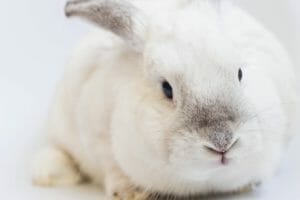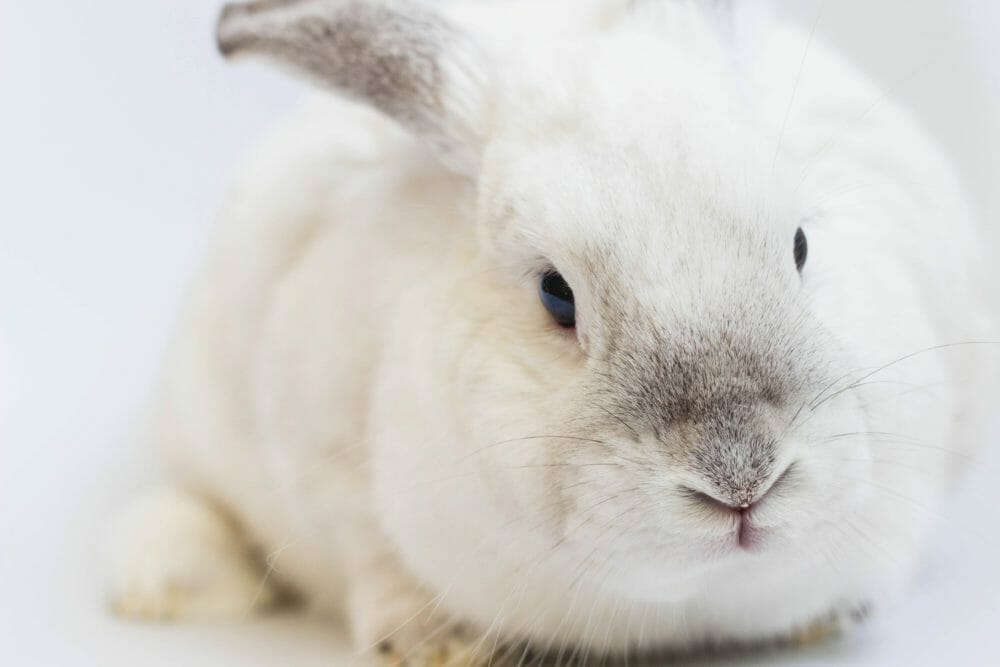What Do Rabbits Eat?

Rabbit by Gustavo Zambelli
Rabbits are wonderful pets to have and it’s your job to take great care of them. When it comes to feeding them, you might be asking yourself: what do rabbits eat? Here is everything you need to know about the kind of rabbit food you can provide your new pet.
Hay
A majority of rabbit food should consist of hay. In fact, it’s something you can make available to them on a regular basis by setting out during the day. It’s great for their dental health and digestive system. Now, adult rabbits do eat different hay than baby rabbits so be sure to purchase the right kind of grass for your pet. Hay should make up roughly %50 of your rabbits diet for optimal health. If your rabbit doesn’t eat enough hay their stomache may become unsettled and they may even stop eating.
Learn more about the best hay for rabbits.
For baby rabbits, you can feed them alfalfa. For adults, you can offer them oat hay, grass, orchard, and timothy hay. Do not feed a rabbit over one alfalfa but feel free to use any of the other hays listed above alone or in combination for an adult.
Pellets
Pellets are a food item that should be used more as a supplement instead of a primary food item. The average adult sized bunny should have no more than ¼ cup of pellets a day. Be sure that they are fresh and not stale, as rabbits are not a fan of stale pellets.
Vegetables
Vegetables should definitely be part of your rabbit’s diet as it’s something they really enjoy! It’s important to incorporate a variety of vegetables–two cups a day for adults and one cup a day for rabbits under five pounds. Below is a list of vegetables; try each in a small quantity to be sure your rabbit enjoys it.
- Basil
- Bell Pepper
- Bok choy
- Broccoli leaves (stems or tops only)
- Brussels sprouts
- Carrot tops (sparingly)
- Chard
- Celery
- Cilantro
- Clover
- Collard greens
- Cucumber
- Dill
- Endive
- Fennel
- Kale (sparingly)
- Lettuce – romaine or dark leaf (no iceberg lettuce or cabbage)
- Mint
- Mustard greens
- Oregano
- Parsley
- Rosemary
- Sage
- Spinach
- Sprouts: alfalfa, radish, clover
- Thyme
- Zucchini
Plants around your house may be poisonous so place any that you have out of reach from the rabbit.
Treats
Treats should be given sparingly to your rabbit and the best treats for your rabbit are fruits. It’s best to give them to your rabbit no more than one to two times a week. Here is a list of fruits that are good for your rabbit:
- Apple (without seeds)
- Banana
- Berries: blueberries, blackberries, strawberries, raspberries, cranberries
- Cherries (without seeds)
- Grapes
- Melon
- Orange
- Peach
- Pear
- Pineapple
- Plum
- Watermelon
You will want to avoid high carbs in the treats such as breads and crackers, as well as store bought treats that include added sugar, preservatives and artificial coloring.
Foods to Avoid
There are foods that are not good for your rabbit and you will want to avoid. Items include chocolate, yogurt, cauliflower, seeds, potatoes, beans, sugar, pasta, corn, iceberg lettuce, and crackers.
Water
It’s important to always make fresh water available to your rabbit, whether that’s in a bowl or hanging water bottle. It’s vital in rabbit food 101.
I have always loved rabbits. A rabbit was my very first pet. Since owning my first rabbit I have gone on to own many more. I look forward to being able to get my kids their very own pet rabbits.


Thanks!!!!! I might get a bunny!!
Glad to hear it has helped you out!
Thanks for the info i have my own rabbit myself
Thanks for the info!!!
Thank you for the info. Peter like soda crackersand old fashioned oat meal, also minute oat meal. He is 14 mos. old. He seems health but he sound like he has bronchitis. He is a New Zealand white and Black. The only black he has is a ring around his right eye that looks like mascara. It would be fun to find him a mate with the same markings.